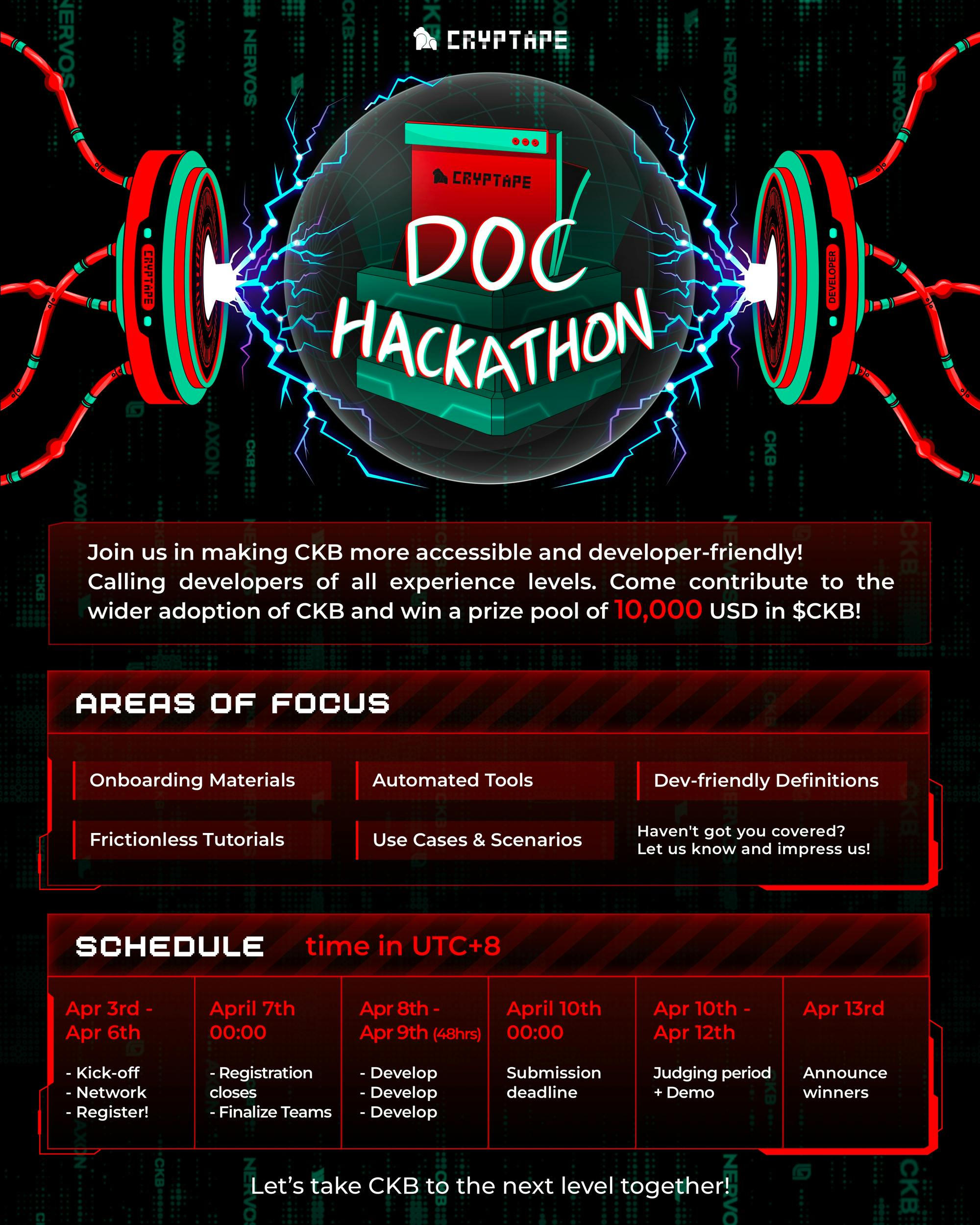Network & Code
Cryptape 2023 Doc Hackathon has officially started!
Phrase 1: Team up!
⏱️ Apr. 3-6 UTC+8
🔎 Choose 1 out of 5 topics
🏆 Prize: 10,000 USD $CKB
🔖 Register here

🎟️ Don't forget to join our Discord!
Blockchain Highlights
How to Leverage ZKPs as a Web3 Builder
Zero-knowledge proofs (ZKPs) are a transformative technology that is finding applications within and outside Web 3. They are addressing major bottlenecks in scalability and privacy, which are two major pain points in blockchain technology. ZKPs are expanding beyond private transactions and transaction mixing era into more complex and useful areas such as private on-chain trading, identity, and verified credentials
The Myth of Web3's Infrastructure Phase
The future of Web3 consumer products will require building compelling products and experiences, and that over time, most people won't be aware that they're interacting with blockchains or tokens. The article provides some examples of products and experiences that the author is excited about, including games with millions of players collecting and trading in-game assets that are NFTs, web3 brands and creators building communities with millions of NFT holders, and community-owned record labels that produce the next generation of top artists.
The "Open Sourced" Social Media Era
Twitter's uses a three-stage recommendation pipeline, including candidate sourcing, machine learning model ranking, and heuristics and filters. The service responsible for constructing and serving the timeline is called Home Mixer. The algorithm uses graph processing engines like GraphJet and embedding space approaches to generate numerical representations of users' interests and tweet content. It then calculates the similarity between users, tweets, or user-tweet pairs in this embedding space.
"Shared Sequencing" Could Help Unite Blockchain Rollups
The article explains two blockchain architectures: monolithic and modular. Monolithic blockchains handle all services on one chain but lack scalability. Modular blockchains split tasks between multiple chains but take longer to build and can face centralization. To solve this issue, a shared sequencing network can be introduced to avoid centralization and reduce dependency on network participants. This is different from shared security solutions implemented on Cosmos.
Join Us
Let’s build trustworthy protocols and products, serving millions of users and shaping the digital world of tomorrow.
Rust Developer https://cryptape.com/#/jobRole/0/2
Fullstack engineer https://cryptape.com/#/jobRole/0/3
Developer Relations https://cryptape.com/#/jobRole/3/0

